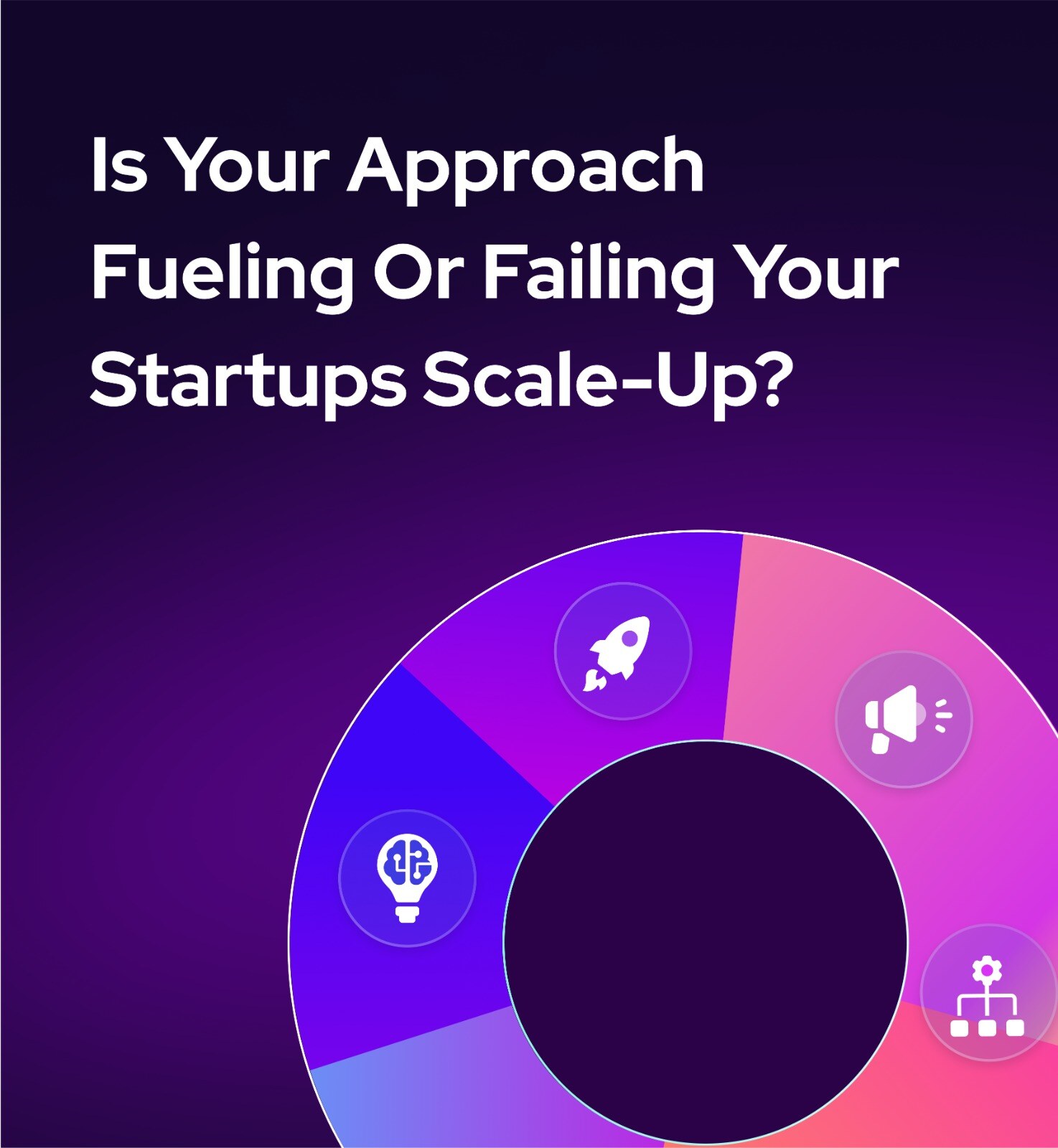Email Escalator: Lifting Leads to Fuel Startup Growth
In the fast-paced world of startups, growth is everything. While there are numerous strategies to fuel this growth, one of the most powerful and often underutilized tools is email marketing.
When used effectively, email becomes an "escalator," smoothly lifting leads through your sales funnel and propelling your startup towards rapid growth. In this comprehensive guide, we'll explore how to harness the power of email marketing to accelerate your startup's growth trajectory.
Understanding the Email Escalator Concept
Before we dive into strategies, let's clarify what we mean by the "Email Escalator":
- Awareness: Introducing your brand and value proposition
- Interest: Providing valuable content to engage leads
- Consideration: Showcasing your product's benefits
- Intent: Offering trials, demos, or consultations
- Evaluation: Addressing objections and providing social proof
- Purchase: Facilitating the buying decision
Each step of this escalator corresponds to a stage in the traditional sales funnel. The goal is to use targeted email campaigns to smoothly move leads from one stage to the next, ultimately converting them into customers.
Now, let's explore how to build and optimize your Email Escalator for maximum startup growth.
- Building a Solid Foundation: Lead Capture
The first step in creating your Email Escalator is to build a robust lead capture system. After all, you can't send emails if you don't have anyone to send them to.
Key strategies include:
- Optimizing your website for lead capture with strategically placed sign-up forms
- Creating valuable lead magnets (e-books, webinars, templates) to incentivize sign-ups
- Implementing exit-intent popups to capture leads before they leave your site
- Utilizing social media to drive traffic to landing pages designed for email capture
Remember, the quality of leads is just as important as quantity. Focus on attracting leads who are genuinely interested in your product or service.
- Segmentation: The Key to Personalization
Once you've built your email list, the next crucial step is segmentation. By dividing your list into smaller, more targeted groups, you can create personalized email campaigns that resonate with each segment's specific needs and interests.
Segmentation criteria might include:
- Demographics (age, location, job title)
- Behavioral data (website interactions, past purchases)
- Position in the sales funnel
- Engagement level with previous emails
By sending more relevant emails, you increase the chances of moving leads up your Email Escalator.
- Crafting Compelling Content for Each Funnel Stage
The content of your emails should be tailored to each stage of the funnel. Here's a breakdown of what to focus on at each level:
Awareness:
- Welcome emails introducing your brand
- Educational content about your industry or niche
Interest:
- In-depth blog posts or articles
- Infographics or videos showcasing industry trends
Consideration:
- Case studies demonstrating your product's effectiveness
- Comparison guides positioning your product against competitors
Intent:
- Free trial or demo offers
- Exclusive discounts or promotions
Evaluation:
- Customer testimonials and success stories
- FAQs addressing common objections
Purchase:
- Clear calls-to-action to buy
- Onboarding information for new customers
Remember, the goal is to provide value at every stage, gradually building trust and moving leads closer to a purchase decision.
- Automation: Scaling Your Email Efforts
As your startup grows, manually sending emails to each lead becomes impossible. This is where email automation comes in. By setting up automated email sequences, you can ensure that each lead receives the right message at the right time, without constant manual intervention.
Key automated sequences to consider:
- Welcome series for new subscribers
- Nurture sequences for leads not yet ready to buy
- Abandoned cart reminders for e-commerce startups
- Re-engagement campaigns for inactive subscribers
Automation allows you to scale your email marketing efforts efficiently, a crucial factor for startups aiming for rapid growth.
- Personalization: Making Every Lead Feel Special
Personalization goes beyond just using a subscriber's name in the email. It's about delivering content that feels tailored to each individual's needs and interests.
Advanced personalization techniques include:
- Dynamic content that changes based on subscriber data
- Behavior-triggered emails responding to specific actions
- Product recommendations based on browsing or purchase history
- Personalized send times based on when each subscriber is most likely to engage
The more personalized your emails, the more effective they'll be at moving leads up your Email Escalator.
- Testing and Optimization: Continual Improvement
To maximize the effectiveness of your Email Escalator, you need to continually test and optimize every aspect of your email campaigns. This aligns with the Scaleup Methodology's emphasis on data-driven decision making and continuous improvement.
Elements to test include:
- Subject lines
- Email copy
- Call-to-action buttons
- Send times
- Email design and layout
Use A/B testing to compare different versions and implement the winning variations. Over time, these incremental improvements can lead to significant increases in email performance and, consequently, startup growth.
- Metrics That Matter: Measuring Success
To ensure your Email Escalator is effectively fueling startup growth, you need to track the right metrics. Key performance indicators (KPIs) to monitor include:
- Open rates
- Click-through rates
- Conversion rates
- List growth rate
- Email sharing/forwarding rate
- Overall ROI of email campaigns
By focusing on these metrics, you can gauge the effectiveness of your email marketing efforts and identify areas for improvement.
- Leveraging Behavioral Triggers
Behavioral triggers are a powerful way to make your Email Escalator more responsive to individual lead actions. These are emails automatically sent based on specific behaviors exhibited by your leads.
Examples of behavioral triggers:
- Browsing a particular product page triggers a follow-up email with more information
- Downloading a whitepaper prompts a series of related content emails
- Attending a webinar initiates a sequence of emails expanding on the webinar topic
By responding promptly to lead actions, you can keep engagement high and move leads more quickly through your funnel.
- Re-engagement Strategies: Rescuing Fallen Leads
Not all leads will smoothly ascend your Email Escalator. Some may become disengaged over time. Implementing re-engagement strategies can help you win back these leads and get them moving up the funnel again.
Re-engagement tactics include:
- Sending a "We miss you" email with a special offer
- Asking for feedback on why they've disengaged
- Providing a roundup of what they've missed
- Offering to change email frequency or content type
Remember, re-engaging an existing lead is often more cost-effective than acquiring a new one.
- Integration with Other Marketing Channels
While email is powerful, it shouldn't exist in a vacuum. Integrating your Email Escalator with other marketing channels can create a more cohesive customer journey and accelerate startup growth.
Integration strategies include:
- Using retargeting ads to reinforce email messages
- Aligning email content with social media campaigns
- Incorporating email sign-ups into your content marketing strategy
- Using chatbots to collect email addresses and trigger relevant email sequences
By creating a seamless multi-channel experience, you can more effectively guide leads through your funnel.
- Compliance and Best Practices
As you scale your email marketing efforts, it's crucial to adhere to email marketing laws and best practices. This includes:
- Obtaining explicit consent before adding someone to your list
- Including a clear unsubscribe option in every email
- Regularly cleaning your list to remove inactive subscribers
- Being transparent about how you'll use subscriber data
Compliance not only keeps you on the right side of the law but also builds trust with your audience, making them more likely to engage with your emails.
- Scaling Your Email Marketing Team
As your startup grows, you may need to expand your email marketing team. Consider roles such as:
- Email Marketing Manager to oversee strategy
- Copywriter specialized in email content
- Designer for creating engaging email templates
- Data Analyst to interpret email performance metrics
Building a skilled team allows you to continually refine and improve your Email Escalator, driving even more growth for your startup.
Conclusion
The Email Escalator is more than just a metaphor—it's a powerful strategy for lifting leads through your funnel and fueling startup growth. By implementing the strategies outlined in this guide, you can create an email marketing machine that consistently moves leads towards conversion, accelerating your startup's growth trajectory.
Remember, the key to success is continuous optimization. Regularly analyze your results, test new approaches, and refine your strategy based on data-driven insights. With persistence and creativity, your Email Escalator can become one of your startup's most valuable assets in achieving rapid, sustainable growth.
Bridging to Scaleup Methodology
The Email Escalator concept aligns perfectly with the Sales pillar of the Scaleup Methodology. It provides a systematic, scalable approach to nurturing leads and driving conversions, which is crucial for startups aiming to achieve rapid growth.
Moreover, the emphasis on data-driven optimization and continuous improvement echoes the Scaleup Methodology's focus on metrics and iterative development. By constantly refining your email marketing strategy based on performance data, you create a growth engine that becomes more effective over time.
The scalability of email marketing, especially when automated, supports the Scaleup Methodology's goal of creating repeatable, efficient processes that can support rapid growth without a proportional increase in resources. This makes the Email Escalator an ideal tool for startups looking to scale quickly and sustainably.
By integrating the Email Escalator strategy into your broader growth plans, you're not just implementing a tactic—you're building a systematic approach to sales and customer acquisition that can support your startup through multiple stages of growth, from early traction to market leadership.
Disclaimer
This blog post was initially generated using Inno Venture AI, an advanced artificial intelligence engine designed to support digital product development processes. Our internal team has subsequently reviewed and refined the content to ensure accuracy, relevance, and alignment with our company's expertise.
Inno Venture AI is a cutting-edge AI solution that enhances various aspects of the product development lifecycle, including intelligent assistance, predictive analytics, process optimization, and strategic planning support. It is specifically tailored to work with key methodologies such as ADAPT Methodology® and Scaleup Methodology, making it a valuable tool for startups and established companies alike.
Inno Venture AI is currently in development and will soon be available to the public. It will offer features such as intelligent product dashboards, AI-enhanced road mapping, smart task prioritization, and automated reporting and insights. If you're interested in being among the first to access this powerful AI engine, you can register your interest at https://innoventureai.com/

Take The Test
You May Also Like
These Related Stories

Lean Product Process: Scale Your Startup Successfully

Sprint Planning: Optimizing Efficiency as Your Startup Expands

